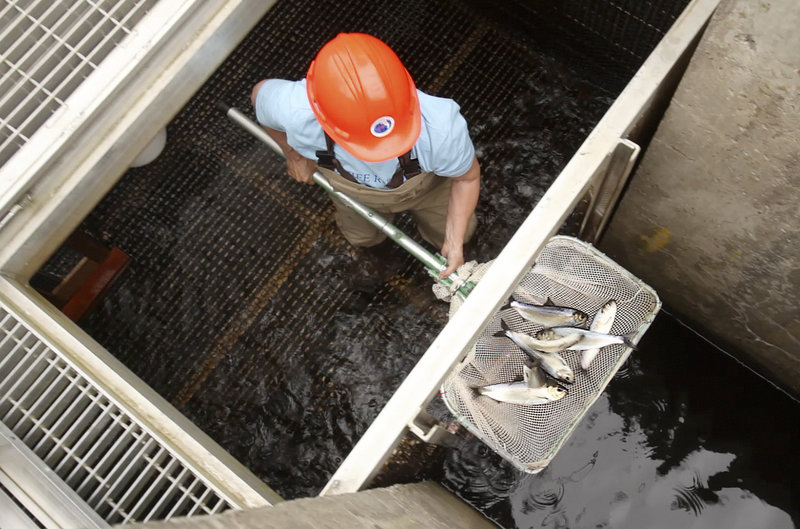The U.S. Environmental Protection Agency has directed the State of Maine to allow alewives into the St. Croix River.
The ruling was issued in a July 9 letter to Attorney General William Schneider. In the letter, the federal agency effectively quashed Maine laws passed in 1995 and 2008 that ordered the fishways at Grand Falls Dam on the Maine-New Brunswick border to be closed to alewives, also known as river herring.
The EPA said the law – passed largely at the behest of sport camp guides in interior Washington County — violated the federal Clean water Act and EPA regulations. “Maine should take appropriate action to authorize passage of river herring to portions of the St. Croix River above Grand Falls Dam,” Stephen Perkins, director of the EPA Office of Ecosystem Protection wrote Schneider.
The heated battle over the alewives access to the St. Croix was the subject of a story in the Maine Sunday Telegram this past Sunday.
EPA wrote the letter in response to legal action by two separate groups earlier this year. On May 31, the Conservation Law Foundation filed a lawsuit against the agency in an effort to compel it to review and overrule the Maine laws. Another environmental group, the Richmond-based Friends of Merrymeeting Bay, had notified EPA they intended to sue as well.
“It’s a good day for the St. Croix and for alewives and people and other critters that depend on them, but this is not done until the state takes the final step, which is repealing the law and allowing the perfectly functioning fish passage to operate,” said CLF’s Sean Mahoney.
The offices of Attorney General Schneider and Gov. Paul Lepage did not immediately respond to requests for comment.
The chiefs of the state’s Passamaquoddy, Penobscot, Maliseet and Micmac Indian tribes sent a joint letter to Gov. Paul LePage June 21 urging him to support a forthcoming effort to get the legislature to overturn the law and allow the forage fish access to the watershed.
Alewives were effectively shut out of the river from 1825 to 1981, first because of impassable dams, and later because of pollution from lumber and paper mills. But between 1981 and 1987, their annual run grew thirteen-fold to more than 2.6 million.
But in 1995, Augusta lawmakers passed a law that ordered the fishways at Woodland and Grand Falls to be closed to the fish because of fears over their effect on smallmouth bass populations in the region’s lakes and ponds. The St. Croix alewife runs collapsed to just 900 fish in 2002, a fall of 99.7 percent.
In 2008 the legislature revisited the issue, but ultimately decided only to open the Woodland Dam to the fish, depriving them of an estimated 94 percent of their habitat.
Environmentalists and marine-fisheries advocates say a restored alewife population will benefit both the freshwater and marine ecosystems, as they are a source of food for smallmouth bass, cod and other species.
Send questions/comments to the editors.



